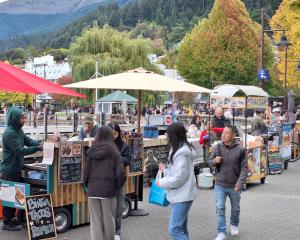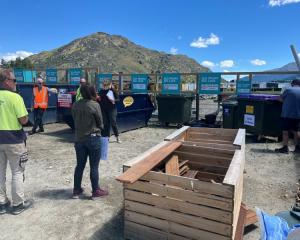
On Wednesday property owners and residents in a corner of the suburb were informed by the Queenstown Lakes District Council testing it commissioned revealed arsenic levels nearly four times the national standard for residential land in places.
The 60 people at the meeting were told by council general manager of planning and infrastructure Tony Avery the discovery was "not an easy issue to deal with".
"[We’re] trying to give you the best information we know, and some options for how we can deal with it."
Public Health South medical officer of health Dr Derek Bell said he did not expect there would be health effects from the levels revealed by council testing so far.
Mr Avery said the council was legally required to put information about arsenic levels on properties’ land information memorandum (LIM) reports.
But Elm Tree Ave resident Peter Rogers asked why Remarkables Park Ltd (RPL) could not replace the soil in the road verges "so we can get this nonsense off our LIM reports".

If residents were concerned about the soil on their own properties — particularly in their vegie gardens — they could get it tested.
In the past two weeks, soil tests were carried out at 50 sites in an area south of Robertson St and the Remarkables Park shopping area. Of those sites, 23 were found to have arsenic levels exceeding the national environmental standard for residential land of 20mg per kg of soil.
The results ranged between 23mg/kg and 78mg/kg.
The environmental consultant who carried out the tests for the council, Glenn Davis, said five or six samples would be required to adequately test a garden’s soil for arsenic, with each costing $40.
The issue was brought to light by RPL, the developer of an early 1990s subdivision where the highest levels have been found.
It was carrying out routine testing on an adjacent site.
Remarkables Park development manager Brian Fitzpatrick said the soil used to form the subdivision’s verges was brought in from elsewhere by a contractor, but had not been used on the sections themselves.
Mr Fitzpatrick said the contractor was no longer in business.
If testing on private properties revealed elevated arsenic levels and residents wanted the soil removed, RPL would provide replacement soil.












